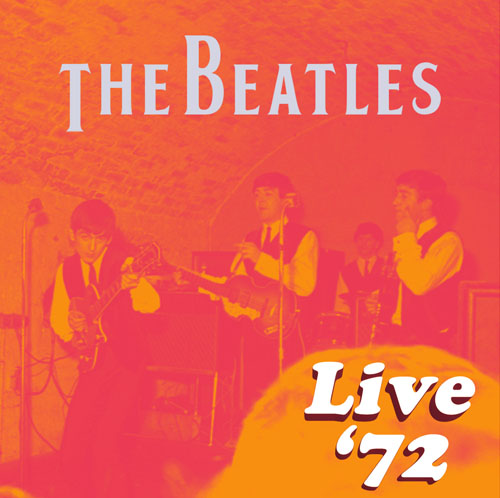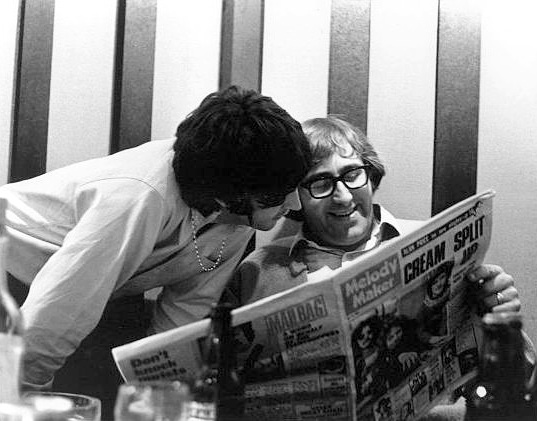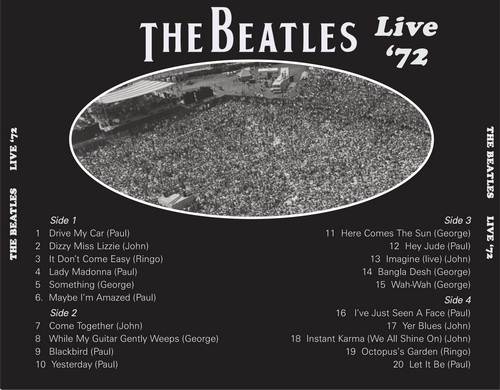Any Major Soul 1974 – Vol. 1
If 1972 and ’73 were the zenith years of soul music, then 1974 was not that far behind in quality. This collection has some marvellous songs, as will the second volume. I think only two songs here are well-known, those by Ann Peebles (covered in the 1980s by Paul Young) and Betty Wright’s anthem to virginity-losing Tonight Is The Night, which now is better known in its glorious live version.
It always is a bit of a gamble starting off a mix with a track by an obscure group; here it is justified with Executive Suite’s delicious slice of Philly Soul. There’s not much to tell about this band which never made a breakthrough after having a bit of a disco hit with the featured track, When the Fuel Runs Out, written and produced by Philly Soul notables Norman Harris, Alan Felder and Bunny Sigler. Their lack of success is a pity; the self-titled LP was pretty great. In the early 1970s the group, then still called The Millionaires, had occasional vocal contributions from a young white singer by the name of Darryl Hall, who actually suggested the name-change to Executive Suite.
If the song Goodbye Nothing To Say by The Javells featuring Nosmo King sounds familiar, it is because Maxine Nightingale’s big 1976 hit Right Back To Where We Started From “sampled” heavily from it. Arguably it shouldn’t be on a soul mix: it appeared on the b-side of an English pop record titled Teenage Love by Nosmo King (the name is a wordplay), a pseudonym for one Stephen Jameson, who now plies his trade as a comedian. Apparently Jameson introduced his song to DJs on England’s Northern Soul circuit, which picked it up. So it does belong here.
New York band The Ace Spectrum released only three albums, of which 1974’s Inner Spectrum was the first. It was produced by songwriter, arranger and producer Patrick Adams whom you may know for his co-composition When You Wake Up Tomorrow for Candi Staton or Cathy Dennis’ 1991 hit Touch Me (All Night Long).
If you have not heard her before, you may well find Bettye Crutcher to be one of the discoveries of this set. Her Long As You Love Me album, released on Stax (for whom she was a staff composer), might have felt two years behind the times in 1974, when much of soul was breathed on by the upbeat vibes of disco. That might explain its lack of success, but, my, what an album it is!
Crutcher co-produced and co-wrote most of the songs with Mack Rice (him of Mustang Sally fame). It was her only album, and received barely any promotion from Stax. When Stax collapsed, Crutcher moved to England and became an antiques dealer. Her songwriting credits, alone or with others, include tracks such as Johnny Taylor’s much-covered Who’s Making Love and Somebody’s Been Sleeping In My Bed , Barbara Mason’s From His Woman To You, William Bell’s My Whole World Is Falling Down, and Betty Wright’s (and later Ted Taylor’s) I’m Gonna Hate Myself In the Morning.
As ever, CD-R timed, covers, PW in comments.
1. Executive Suite – When The Fuel Runs Out
2. The Joneses – Hey Babe (Is The Gettin’ Still Good) Pt 1
3. Ace Spectrum – Don’t Send Nobody Else
4. The Javells feat. Nosmo King – Goodbye Nothing To Say
5. Major Harris – Two Wrongs
6. Betty Wright – Tonight Is the Night
7. Ann Peebles – I’m Gonna Tear Your Playhouse Down
8. The Soul Children – It’s Out Of My Hands
9. Lamont Dozier – Rose
10. Johnny Bristol – Reachin’ Out For Your Love
11. Grady Tate – I Wouldn’t Have You Any Other Way
12. Bettye Crutcher – Up For A Let Down
13. Lim Taylor – Isn’t It Wonderful
14. William DeVaughn – You Can Do It
15. Margie Joseph – Sweet Surrender
16. Gloria Scott – What Am I Gonna Do
17. The Manhattans – Don’t Take Your Love From Me
18. Blue Magic – Stop To Start
19. Gene Redding – I Can See The Lovelight
20. Candi Staton – Here I Am Again
21. Sidney Joe Qualls – Run To Me
22. The Four Tops – Right On Brother
23. Brother To Brother – Hey, What’s That You?











Recent Comments